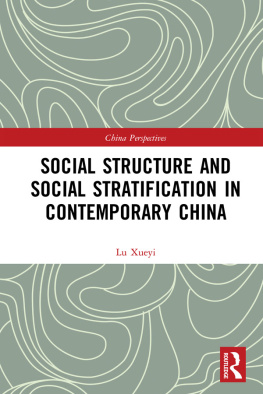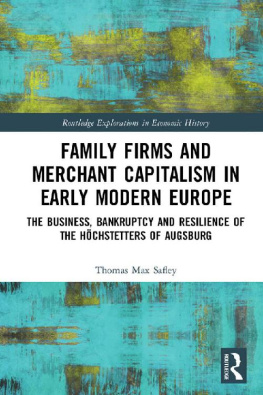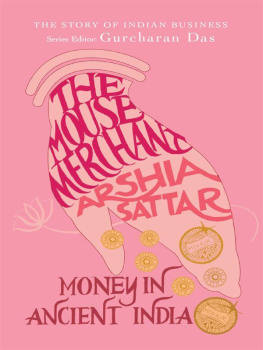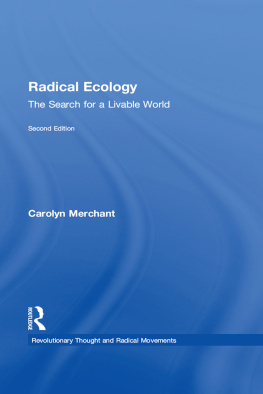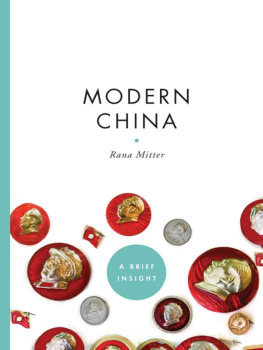
Merchants and Society in Modern China
In the late nineteenth and early twentieth centuries, merchants in China were incorporated into the bourgeoisie and constituted a vital part of the upstart capitalists. The lowermost class in ancient Chinas social hierarchy has thus become a strong force of social transformation in the modern era.
From the angle of the interaction between the merchant and modern society, this book examines the factors behind the rise of the merchant class in China in terms of its cultural traits, inner structure, and business modes. First, it analyzes the features and historical standings of merchant culture which came into existence on the basis of reworking and integrating Neo-Confucianism. It argues that merchant culture pushed Chinas early enlightenment movement to a new level. Then the rise of the bourgeoisie and their role in the evolution of modern Chinese society are studied thoroughly. More importantly, by examining the golden age of the merchant after the 1911 Revolution and its end brought by the Northern Expedition, this book studies the dilemmas faced by Chinese merchants. Finally, it probes the reasons why it was hard for China to go beyond modern society, that is, completing the transition from commodity economy to capitalist economy.
This book will deepen the understanding of Chinas merchant class and modern Chinese society. Scholars and students in economics, history, sociology, and cultural studies will be attracted by it.
Tang Lixing is Professor in the College of Humanities and Communications, Shanghai Normal University. His research focuses on Chinese social and business history.
China Perspectives
For more information, please visit www.routledge.com/series/CPH
The China Perspectives series focuses on translating and publishing works by leading Chinese scholars, writing about both global topics and China-related themes. It covers Humanities & Social Sciences, Education, Media and Psychology, as well as many interdisciplinary themes.
This is the first time any of these books have been published in English for international readers. The series aims to put forward a Chinese perspective, give insights into cutting-edge academic thinking in China, and inspire researchers globally.
Existing titles:
John Leighton Stuarts Missionary-Educators Career in China
Hao Ping
John Leighton Stuarts Political Career in China
Hao Ping
Merchants and Society in Modern China
Rise of Merchant Groups
Tang Lixing
Merchants and Society in Modern China
From Guild to Chamber of Commerce
Tang Lixing
Forthcoming titles:
The History of Chinese Ancient Politics I
Wang Zengyu
The History of Chinese Ancient Politics II
Wang Zengyu
Merchants and Society in Modern China
From Guild to Chamber of Commerce
Tang Lixing
This book is published with financial support from the Chinese Fund for the Humanities and Social Sciences
First published 2018
by Routledge
2 Park Square, Milton Park, Abingdon, Oxon OX14 4RN
and by Routledge
711 Third Avenue, New York, NY 10017
Routledge is an imprint of the Taylor & Francis Group, an informa business
2018 Tang Lixing
Translated by He Qiliang
The right of Tang Lixing to be identified as author of this work has been asserted by him in accordance with sections 77 and 78 of the Copyright, Designs and Patents Act 1988.
All rights reserved. No part of this book may be reprinted or reproduced or utilised in any form or by any electronic, mechanical, or other means, now known or hereafter invented, including photocopying and recording, or in any information storage or retrieval system, without permission in writing from the publishers.
Trademark notice: Product or corporate names may be trademarks or registered trademarks, and are used only for identification and explanation without intent to infringe.
English version by permission of The Commercial Press.
British Library Cataloguing-in-Publication Data
A catalogue record for this book is available from the British Library
Library of Congress Cataloging-in-Publication Data
A catalog record for this title has been requested
ISBN: 978-1-138-08913-6 (hbk)
ISBN: 978-1-315-10940-4 (ebk)
Typeset in Times New Roman
by Apex CoVantage, LLC
The great Confucian scholar in the Han dynasty, Dong Zhongshu, once said, Dao originated from the heaven. As the heaven remains unchanged, so does Dao. After the first emperor of the Qin unified China and established a state of bureaucratic dictatorship, its economy was by nature a small peasant one under the landlord system. Dao, which was perceived to fill the heaven and earth, was nothing but the Confucian three cardinal guides and the five constant virtues. Small-peasant economy was extremely weak, but became the main source of taxation of the state. It was thus the essence of Dao to protect small peasants and suppress merchants, from which the notion of four classes derived. The whole population was categorized into four classes the scholar, the peasant, the artisan, and the merchant, among which the merchant was the lowest. The Tang poet Yuan Zhen stated in The Happiness of the Merchant (Guke le),
[After] traveling around the whole world, [the merchant] arrived in Changan. In the East Market and West Market, the merchant was greeted by one after another. Greeters were also agents; the rich submitted to the influential. The merchant had been smart, but felt amazed. [The merchant] asked eunuchs first; he then pleaded with various officials. The marquiss residence and the masters house were both decorated nicely. After he returned, he felt settled. He was as powerful as the prince.
The merchant was wealthy, but lacked political standing. They must gain protection from political authorities by nicely decorated the marquiss residence and the masters house. Under the authoritarian rule of emperors, the merchant, who was at the bottom of the four classes, could not change the situation that the rich submitted to the influential. Entering into the sixteenth century, commerce and manufacture matured gradually with the opening of new trading routes, the thriving of smuggling trades, and the expansion of overseas market. Capitalism sprouted. The merchant class became the most progressive social force in China after the sixteenth century. Their business activities shook the very foundation of traditional society and contributed to its slow transformation. By exploring the interaction between the merchant and modern society, this book examines the changed and the unchanging of the merchants Dao in the modern era of dramatic transformations.
The change of the heaven in Chinas traditional society marked the birth of the sprout of capitalism. The sprout of capitalism was the initial stage of developing the capitalistic mode of production inside a traditional society. Its birth and maturity were the process of transforming the traditional mode of production into the capitalistic mode of production. We call the historical period when capitalism budded and eventually matured as modern society, which could further divided into early and late periods. The early modern times saw the birth and growth of the sprout of capitalism, while the late period witnessed the maturity of the sprout of capitalism. Here, maturity is a relative idea. In terms of Chinas unique condition, it referred to the merchants investment in new-style enterprises and the rise of the bourgeoisie. The dividing line between the two periods was the Opium War.


